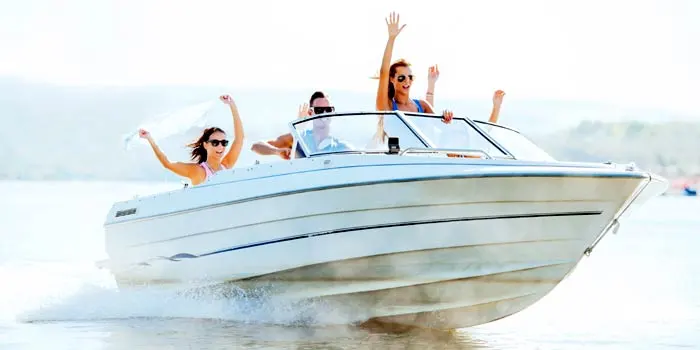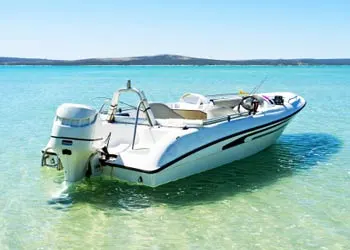The Boat Owner’s Guide to Insurance


Your boat is likely one of your most prized possessions. It did not come cheap, the maintenance is not easy, but it provides some of the best family memories. And you want to protect it with the right boat insurance that will come to the rescue in case of the unexpected. This boat owner’s insurance guide will help you understand what coverage is best.
Coverage for boats and personal watercrafts differs based on the insurer. But much like auto insurance, knowing the exact boat insurance coverage you need comes down to several specific factors.
An important factor affecting a boat’s insurance coverage is the location of the engine, which may determine whether the motor is covered by the insurance policy. Outboard motors are insured separately from the boat, whereas inboard and “L” drive boats include the motor as part of the boat itself. To understand the different categories of coverage, it’s helpful to consider the type of watercraft you own based on where the engine is located.
An inboard boat has the engine mounted in the middle of the boat and uses a separate rudder to enable the boat to steer. These types of boats are popular with water skiers as they produce a smaller wake.
This is a watercraft propelled by one or more outboard motors. They are popular among boaters and are often the default choice for both fishing and recreation. Outboard boats include canoes, rowboats, houseboats and pontoon boats.
The engine on inboard/outboard (I/O) boats is located in the same general area as an outboard boat, but it’s usually tucked under a swim platform. This hybrid model is usually mounted at mid-ship and drives a propeller shaft that passes through the bottom of the hull.
A sailboat is propelled primarily by wind. Sailboats with or without any form of power are included in this category.
A personal watercraft, or PWC, is a recreational watercraft that the rider sits or stands on. PWCs include jet skis and wave runners. Watercraft insurance is considered to be its own special coverage.
To determine how much your boat insurance will cost, most companies take these factors into consideration.
Boat insurance coverage is primarily used as liability coverage for equipment and passengers within the boat. This means that you can be covered if you're at fault for an accident, you hurt someone or you damage someone's property. You may also use boat insurance to cover any physical damage in or on your boat. Boat insurance generally covers:
Boat insurance does not generally cover:
You might be wondering if your homeowner’s policy covers your boat. In many cases, it does! There is physical damage coverage for your boat included in your homeowner’s policy when your boat is being stored on your property. These policies typically cap boat coverage at $1,000 or 10% of your home’s insured value. Once your boat is off your property, however, other insurance is needed. Liability coverage typically isn’t included with your homeowner’s insurance. Make sure to check with your local Farm Bureau agent to ensure your boat is covered no matter where you are.
To be covered by boat insurance, your watercraft must be solely used for personal pleasure. Insurance companies generally don’t provide boat coverage for commercial use, racing or watercrafts that carry passengers for hire. If you use your boat for these purposes, you’ll need to look into commercial boat insurance coverage.
Additionally, if the watercraft is too long or has too much horsepower, it may not be insured with boat coverage. For example, if a boat is more than 30 feet in length and requires a crew, or exceeds more than $100,000 in market value, you will need to look into over forms of coverage. Ask your local agent — they will know just what type of coverage your boat needs.
If you’re ready to get a quote, make sure to have this information handy when you contact your agent so that your premium quote will best represent your boat.
Still have questions? Contact your local Farm Bureau agent who can explain boat insurance for you personally and get your boat ready for the season.
